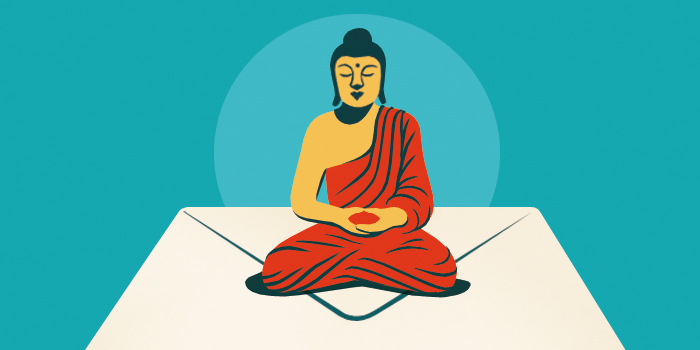What do Zen teachers say about enlightenment?
In Zen, enlightenment is the inherent nature of all beings, not a special quality only some people possess. Since enlightenment is already present, we are all capable of realizing it. However, we are not always aware of our awakened nature because our minds are clouded by various impurities such as greed, anger, and ignorance, known in Buddhism as the three poisons.
One of the oldest Zen teachings is Ordinary mind is the way. In other words, the enlightened mind that understands the true nature of existence and the clouded, ordinary mind that gets angry at bad drivers, for instance, are actually the same. Zen practices like zazen meditation are meant to help us clear our minds by recognizing the impurities and letting them go. The job of the Zen teacher is to guide students in this work so that they can directly experience the enlightenment that has always been with them.
Some Zen teachers don’t say much about enlightenment—or even use the word at all. That’s because giving us ideas about it doesn’t help us realize it. Instead, a teacher might talk about kensho, a Japanese word that means “seeing one’s true nature.” Kensho is most often described as an “opening” experience in which one suddenly awakens to the true nature of the self and has a personal realization of sunyata, or emptiness, a concept central to Buddhist philosophy. While kensho is a significant milestone on the path—especially in the Rinzai school of Zen and the Linji school of Chan—the process of awakening goes on forever. There is always something more to be clarified, and Zen Buddhist practice is a lifelong endeavor.
You may have heard about the famous historical debate in Zen between advocates of “gradual enlightenment”—awakening happening only after many years of practice—and those who believed it happens suddenly. But over time, the Zen community realized that both sides were right. All schools of Zen today believe in sudden enlightenment, meaning that the enlightened mind is already present, and realization of that mind may come to any of us in an instant. But at the same time, what is realized in a moment needs to be integrated and deepened through further practice, ideally under a teacher’s guidance. This is known as “sudden enlightenment and gradual cultivation.”
Gradual enlightenment is often associated with the Caodong, or Soto school of Zen, but this is inaccurate. Soto’s founding teacher, Eihei Dogen (1200–1253), taught that enlightenment is already present. He discouraged students from thinking of enlightenment as a goal, because striving toward a goal reinforces the illusion of a self who might achieve it. Instead, Dogen taught that practice and enlightenment are one activity. Instead of struggling to “get” it, be still and let it unfold, he said.

Tricycle is more than a magazine
Gain access to the best in sprititual film, our growing collection of e-books, and monthly talks, plus our 25-year archive
Subscribe now